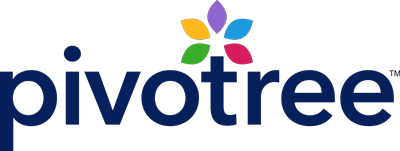Living in India, we’ve all heard and used the word ‘Jugaad’ at some point. For those of you who are unaware, the word ‘Jugaad’ means to create a solution under restrictive circumstances. A management consultant somewhere probably looked at “Jugaad” and came up with the much more business-like term “Frugal Innovation.”
“Jugaad” could become necessary either because of accessibility or financial issues. However, what sets the really great solutions are that these tactics can later turn into great ideas and produce innovative outcomes. In fact, when we think about it, ‘Jugaad’ is nothing but embracing a solution-oriented attitude. To my mind, it is the ability to ‘Think Yes’ and find another alternative. It basically gets stuff done.
I came across this quote from Wido Menhardt, CEO of the Philips Innovation Center in Bangalore. Presumably, while encountering a particularly ‘Jugaad’ solution, he said, “This is a clever, unconventional, quick way to solve a problem. It is always out-of-the-box, and it is typically very focused.” He also added that Philips was in need of exactly these kinds of innovations to not only develop products for emerging markets but also help them increase competition in developed markets. He explained that this ‘Think Yes’ philosophy is at large at Philips- “We challenge ourselves with seemingly unattainable goals in cost, delivery time, or function, and as we focus intensely on that goal, it forces us to come up with unconventional solutions. Often, these seem impossible or unrealistic at first, but they can lead to incredible and disruptive solutions.”
So, what about “Think Yes” in the context of our operations?
Thinking Yes in Software Development
I believe that the “Think Yes” philosophy can be applied to any business, even software development. Now a lot of people may say that isn’t Agile and DevOps doing that already? Well, no! While these methodologies are great breakthroughs, they are planned processes. ‘“Think Yes”’ on the other hand is an attitude, and since it is an outcome of a circumstance, it isn’t even planned.
A quote will explain this better than I perhaps could. In the book “Jugaad Innovation: Think Frugal, Be Flexible, Generate Breakthrough Growth”, Professor Jaideep Prabhu says, “Development methodologies such as Agile are internally or supply-side focused; they pursue cost efficiencies or responsiveness as an end goal. Jugaad, in contrast, is primarily externally or demand-side focused. It uses cost efficiency as a means to achieve a larger goal of delivering higher value to customers. Jugaad innovators strive to create products and services that score high on three attributes increasingly valued by customers: Affordability, quality, and sustainability.”
So, that suggests that the “Think Yes” attitude must put the customer at the center of all solution-development efforts. This involves understanding the customer’s pain points and then focusing on doing whatever it takes to solve them. According to the research firm Lab42, 84% of customers say it is somewhat or very important that the company they buy from is innovative and that they’d be willing to pay more for their products.
Now think about this: If your company’s offerings were always on-point with the customer’s needs, wouldn’t you win in the market?
Ours is a technology firm where innovation thrives at the core of everything we do. I believe that when you take pride in your ability to make something work, magic happens! In that context, innovation is about taking care of your customers and finding ways to solve their problems. ‘Think Yes’ for me is all about chasing excellence, regardless of the resources you have at your disposal.
For other organizations that want to adopt this culture -you must encourage bottom-up participation, not top-down governance and control. This will promote flexible thinking and action, not restrictive planning and execution. To me, it’s clear that companies that ‘Think Yes’ are highly adaptable as they don’t limit themselves to a singular model or approach. They are open to pursuing the best available option at any given point.
In conclusion, I believe that not having sufficient resources (be it time, money, or manpower) can sometimes be a blessing! It can be an opportunity to build the ground for transformation and come up with an alternative solution. A ‘Think Yes’ attitude can help us break boundaries and pushes our limits, and that’s when innovation happens.
Trushit Buch, India Lead, Codifyd Inc

